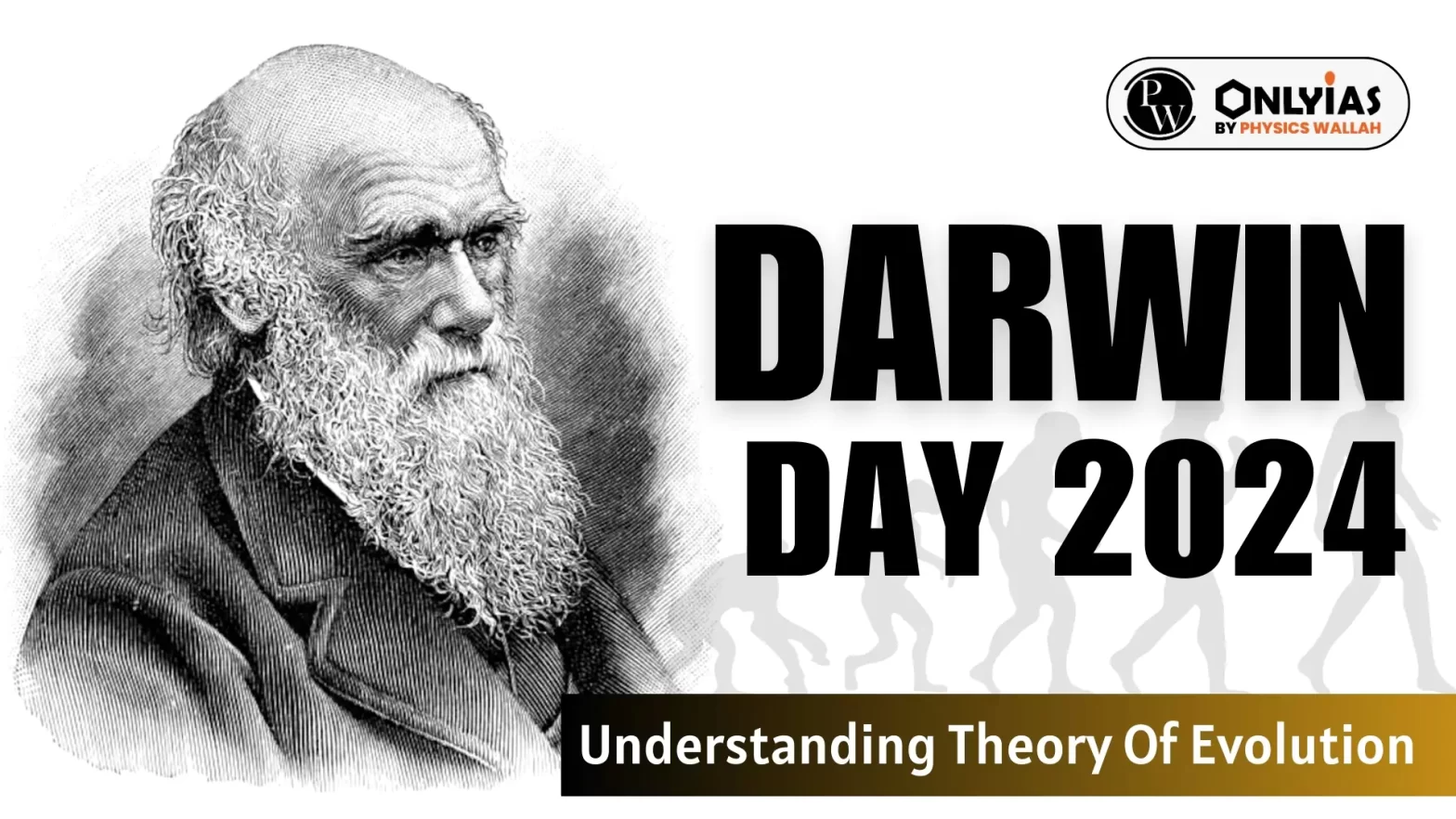Context:
This editorial is based on the news “Darwin Day: How theories of evolution helped our knowledge of life on Earth” which was published in the Indian Express. On Darwin Day (birthday), this article examines key learnings around evolution that help to understand life on earth better.
Darwin Day 2024: An Introduction To Charles Darwin’sTheory Of Evolution
- Charles Darwin’s theory of evolution by natural selection, first outlined in his 1859 book “On the Origin of Species”, is one of the fundamental tenets of modern biology.
- Gradual Changes: Evolution refers to the gradual changes that take place in populations of organisms over generations leading to new species emerging over time.
- Genetic Variations: It occurs due to genetic variations that develop randomly within a population.
- Adaptation and Survival: Individuals with variations that help adaptation and survival in their environments are able to reproduce and pass those useful traits to the next generation.
- Emergence of New Species: Over many generations, these adaptations accumulate resulting in the emergence of new species.
Also Read: Scientists Discover New Kangaroo Lizard Species
Mechanism of Genetic Variation
- DNA Copying Process: Genetic variations occur due to slight inaccuracies in the DNA copying process during reproduction.
- Replication Errors: While DNA replication is very accurate, errors can happen at roughly 1 in every million letters.
- Genetic Mutations: These DNA copying errors manifest as new genetic mutations and account for all genetic diversity seen across species.
About Natural Selection and Adaptation
- Fitter Traits: When a population faces environmental changes, those with fitter traits suited to the new habitat survive better and reproduce more.
- Natural Selection: This leads to an increased proportion of fitter genetic traits in subsequent generations, the process of natural selection.
- Examples of Adaptation: Heat resistance helps adaptation for temperature rise. Resistance to diseases aids survival against new pathogens.
Evolution is Universal
- Unity of Biochemistry: Fundamental aspects like DNA structure, gene expression, and inheritance are identical across the tree of life from microbes to humans.
- Similar Operations: Evolution operates similarly on all organisms. This unity of biochemistry helped unify biology as a discipline.
- Model Species Insights: Experiments on model species like fruit flies or mice yield insights applicable to human health too.
About Human Evolution
- Extinct Ancestors: Humans evolved from now extinct ancestor species which also gave rise to the great apes like chimpanzees.
- Emergence of Homo Sapiens: Multiple human species like Homo erectus and Neanderthals emerged but only Homo sapiens survived finally.
- Out of Africa: Modern humans originated in Africa about 300,000 years back before migrating worldwide.
- Genetic Inbreeding: Genetic evidence suggests interbreeding between Neanderthals and migrating modern humans around 40,000 years back.

Need to Understand Evolution
- Biodiversity Conservation: Habitat loss and overexploitation reduces genetic diversity of wild species dangerously. It limits future evolutionary adaptability in the face of climate change and environmental alterations.
- Medicine and Healthcare: Evolution plays a key role in emerging diseases. Pathogens and pests evolve resistance to drugs and pesticides. Tracking evolutionary changes in viruses helps predict new variants and develop updated vaccines periodically.
- Social Equality: All humans are related by common ancestry and there is no evidence some groups are biologically superior. Genetic diversity is essential for our species’ resilience rather than any indicator of inequality. Understanding this counters ideas of racism, casteism, and other forms of discrimination.
Conclusion
Darwin Day is observed by the United Nations and its members as an opportunity for international partnerships through the common language of science for the common good of all. The Day inspires people throughout the globe to reflect and act on the principles of intellectual bravery, perpetual curiosity, scientific thinking, and hunger for truth as embodied in Charles Darwin.
| Prelims PYQ (2017):
The terms ‘Event Horizon’, ‘Singularity’, ‘String Theory’ and ‘Standard Model’ are sometimes seen in the news in the context of
(a) Observation and understanding of the Universe
(b) Study of the solar and the lunar eclipses
(c) Placing satellites in the orbit of the Earth
(d) Origin and evolution of living organisms on the earth
Ans: (a) |
![]() 12 Feb 2024
12 Feb 2024


